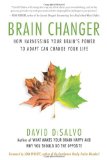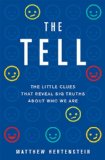new book – ‘The Unity of Mind, Brain and World: Current Perspectives on a Science of Consciousness’
November 7, 2013
The Unity of Mind, Brain and World: Current Perspectives on a Science of Consciousness, ed. by Alfredo Pereira Jr. and Dietrich Lehmann (Cambridge University Press, 2013)
Book description from the publisher:
Issues concerning the unity of minds, bodies and the world have often recurred in the history of philosophy and, more recently, in scientific models. Taking into account both the philosophical and scientific knowledge about consciousness, this book presents and discusses some theoretical guiding ideas for the science of consciousness. The authors argue that, within this interdisciplinary context, a consensus appears to be emerging assuming that the conscious mind and the functioning brain are two aspects of a complex system that interacts with the world. How can this concept of reality – one that includes the existence of consciousness – be approached both philosophically and scientifically? The Unity of Mind, Brain and World is the result of a three-year online discussion between the authors who present a diversity of perspectives, tending towards a theoretical synthesis, aimed to contribute to the insertion of this field of knowledge in the academic curriculum.
Google Books preview:







